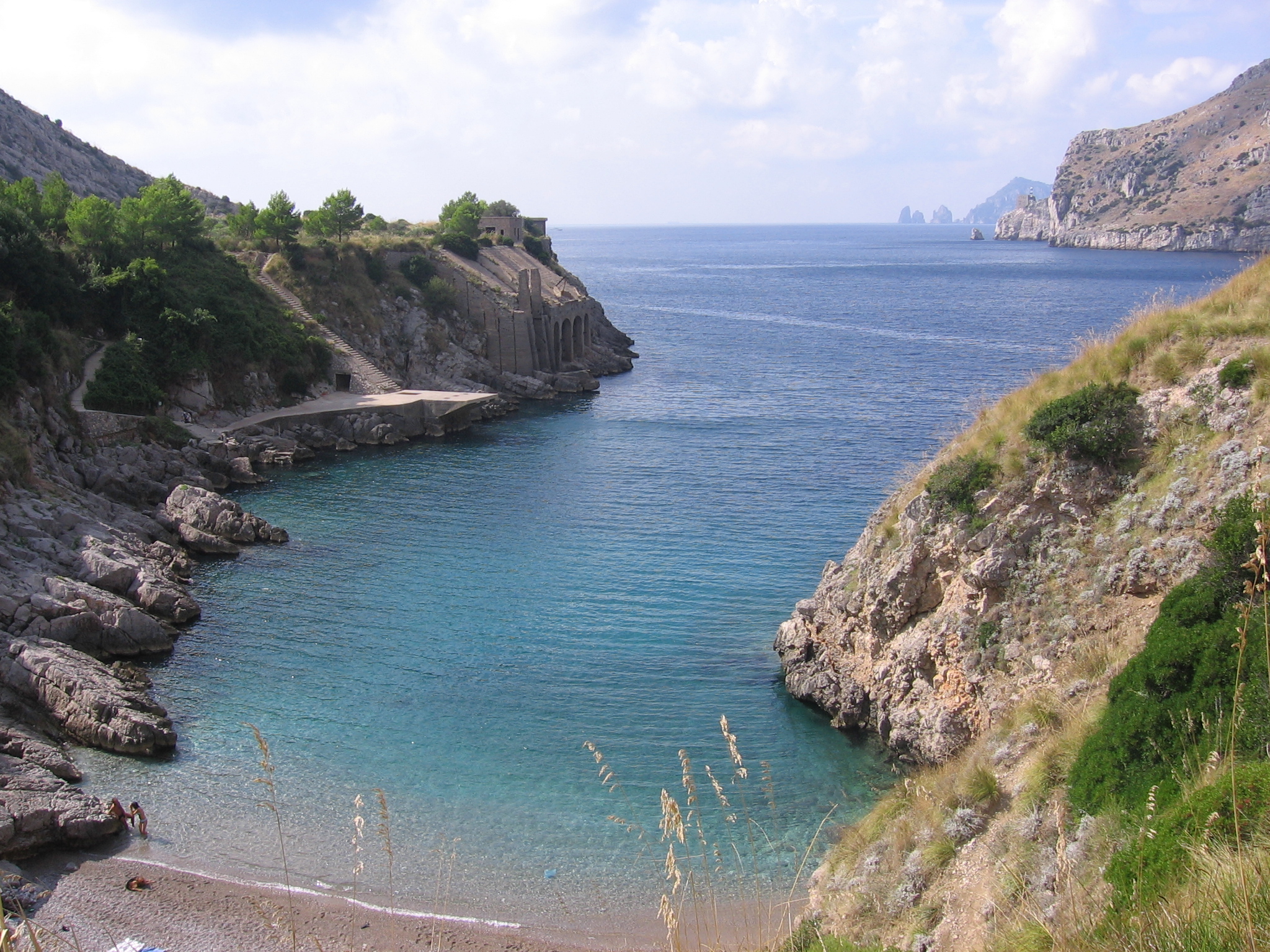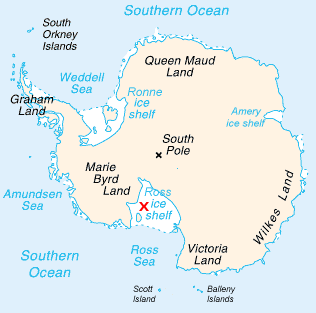|
Skelton Inlet
The Skelton Inlet is an ice-filled inlet at the terminus of the Skelton Glacier, along the western edge of the Ross Ice Shelf in Antarctica. The feature is about 16 km (10 mi) wide at the entry points between Cape Timberlake and Fishtail Point Fishtail Point () is the southernmost point of Shults Peninsula, at the east side of the mouth of Skelton Glacier in Antarctica. It was surveyed and given this descriptive name in 1957 by the New Zealand party of the Commonwealth Trans-Antarctic Ex ..., where it is about 1500 m deep. Its deepest point is 1933 m below sea level. It was discovered by the British National Antarctic Expedition (BrNAE), 1901–04, which named this feature for Lt. Reginald W. Skelton ( Royal Navy), chief engineer of the expedition's ship . References Inlets of Antarctica Bodies of water of the Ross Dependency Hillary Coast {{RossDependency-geo-stub ... [...More Info...] [...Related Items...] OR: [Wikipedia] [Google] [Baidu] |
Inlet
An inlet is a (usually long and narrow) indentation of a shoreline, such as a small arm, bay, sound, fjord, lagoon or marsh, that leads to an enclosed larger body of water such as a lake, estuary, gulf or marginal sea. Overview In marine geography, the term "inlet" usually refers to either the actual channel between an enclosed bay and the open ocean and is often called an "entrance", or a significant recession in the shore of a sea, lake or large river. A certain kind of inlet created by past glaciation is a fjord, typically but not always in mountainous coastlines and also in montane lakes. Multi-arm complexes of large inlets or fjords may be called sounds, e.g., Puget Sound, Howe Sound, Karmsund (''sund'' is Scandinavian for "sound"). Some fjord-type inlets are called canals, e.g., Portland Canal, Lynn Canal, Hood Canal, and some are channels, e.g., Dean Channel and Douglas Channel. Tidal amplitude, wave intensity, and wave direction ... [...More Info...] [...Related Items...] OR: [Wikipedia] [Google] [Baidu] |
Skelton Glacier
Skelton Glacier is a large glacier flowing from the polar plateau into the Ross Ice Shelf at Skelton Inlet on the Hillary Coast, south of Victoria Land, Antarctica. Discovery and naming Named after the Skelton Inlet by the New Zealand party of the CTAE, 1956–58. The glacier was chosen in 1957 as the New Zealand party's route from the Ross Ice Shelf to the polar plateau in support of the main expedition led by Vivian Fuchs to make the first overland crossing of the continent. Allison Glacier descends from the west slopes of Royal Society Range into Skelton Glacier. It was also the route of the four month Victoria Land Traverse 1959-1960 which ascended the Skelton Glacier from the Ross Ice Shelf to make the first entry into the deep interior of Victoria Land from the head of the Skelton Glacier to the French Adelie Land Traverse of 1958-1959 near Dumont d'Urville Station on George V Coast, and thence to the Transantarctic Mountains in the vicinity of the USARP Mountains. Se ... [...More Info...] [...Related Items...] OR: [Wikipedia] [Google] [Baidu] |
Ross Ice Shelf
The Ross Ice Shelf is the largest ice shelf of Antarctica (, an area of roughly and about across: about the size of France). It is several hundred metres thick. The nearly vertical ice front to the open sea is more than long, and between high above the water surface. Ninety percent of the floating ice, however, is below the water surface. Most of Ross Ice Shelf is in the Ross Dependency claimed by New Zealand. It floats in, and covers, a large southern portion of the Ross Sea and the entire Roosevelt Island located in the east of the Ross Sea. The ice shelf is named after Sir James Clark Ross, who discovered it on 28 January 1841. It was originally called "The Barrier", with various adjectives including "Great Ice Barrier", as it prevented sailing further south. Ross mapped the ice front eastward to 160° W. In 1947, the U.S. Board on Geographic Names applied the name "Ross Shelf Ice" to this feature and published it in the original U.S. Antarctic Gazetteer. In Ja ... [...More Info...] [...Related Items...] OR: [Wikipedia] [Google] [Baidu] |
Antarctica
Antarctica () is Earth's southernmost and least-populated continent. Situated almost entirely south of the Antarctic Circle and surrounded by the Southern Ocean, it contains the geographic South Pole. Antarctica is the fifth-largest continent, being about 40% larger than Europe, and has an area of . Most of Antarctica is covered by the Antarctic ice sheet, with an average thickness of . Antarctica is, on average, the coldest, driest, and windiest of the continents, and it has the highest average elevation. It is mainly a polar desert, with annual precipitation of over along the coast and far less inland. About 70% of the world's freshwater reserves are frozen in Antarctica, which, if melted, would raise global sea levels by almost . Antarctica holds the record for the lowest measured temperature on Earth, . The coastal regions can reach temperatures over in summer. Native species of animals include mites, nematodes, penguins, seals and tardigrades. Where ve ... [...More Info...] [...Related Items...] OR: [Wikipedia] [Google] [Baidu] |
Cape Timberlake
Cape Timberlake () is a bold cape at the west side of the mouth of Skelton Glacier. Named by Advisory Committee on Antarctic Names (US-ACAN) in 1964 for Lieutenant Commander Lewis G. Timberlake, U.S. Navy, public works officer at McMurdo Station McMurdo Station is a United States Antarctic research station on the south tip of Ross Island, which is in the New Zealand-claimed Ross Dependency on the shore of McMurdo Sound in Antarctica. It is operated by the United States through the Un ..., 1962. Headlands of the Ross Dependency Hillary Coast {{RossDependency-geo-stub ... [...More Info...] [...Related Items...] OR: [Wikipedia] [Google] [Baidu] |
Fishtail Point
Fishtail Point () is the southernmost point of Shults Peninsula, at the east side of the mouth of Skelton Glacier in Antarctica. It was surveyed and given this descriptive name in 1957 by the New Zealand party of the Commonwealth Trans-Antarctic Expedition The Commonwealth Trans-Antarctic Expedition (CTAE) of 1955–1958 was a Commonwealth-sponsored expedition that successfully completed the first overland crossing of Antarctica, via the South Pole. It was the first expedition to reach the South ... (1956–58). References Headlands of the Ross Dependency Hillary Coast {{RossDependency-geo-stub ... [...More Info...] [...Related Items...] OR: [Wikipedia] [Google] [Baidu] |
British National Antarctic Expedition
The ''Discovery'' Expedition of 1901–1904, known officially as the British National Antarctic Expedition, was the first official British exploration of the Antarctic regions since the voyage of James Clark Ross sixty years earlier (1839–1843). Organized on a large scale under a joint committee of the Royal Society and the Royal Geographical Society (RGS), the new expedition carried out scientific research and geographical exploration in what was then largely an untouched continent. It launched the Antarctic careers of many who would become leading figures in the Heroic Age of Antarctic Exploration, including Robert Falcon Scott who led the expedition, Ernest Shackleton, Edward Wilson, Frank Wild, Tom Crean and William Lashly. Its scientific results covered extensive ground in biology, zoology, geology, meteorology and magnetism. The expedition discovered the existence of the only snow-free Antarctic valleys, which contains the longest river of Antarctica. Further ... [...More Info...] [...Related Items...] OR: [Wikipedia] [Google] [Baidu] |
Royal Navy
The Royal Navy (RN) is the United Kingdom's naval warfare force. Although warships were used by Kingdom of England, English and Kingdom of Scotland, Scottish kings from the early medieval period, the first major maritime engagements were fought in the Hundred Years' War against Kingdom of France, France. The modern Royal Navy traces its origins to the early 16th century; the oldest of the British Armed Forces, UK's armed services, it is consequently known as the Senior Service. From the middle decades of the 17th century, and through the 18th century, the Royal Navy vied with the Dutch Navy and later with the French Navy for maritime supremacy. From the mid 18th century, it was the world's most powerful navy until the World War II, Second World War. The Royal Navy played a key part in establishing and defending the British Empire, and four Imperial fortress colonies and a string of imperial bases and coaling stations secured the Royal Navy's ability to assert naval superiority ... [...More Info...] [...Related Items...] OR: [Wikipedia] [Google] [Baidu] |
Inlets Of Antarctica
An inlet is a (usually long and narrow) indentation of a shoreline, such as a small arm, bay, sound, fjord, lagoon or marsh, that leads to an enclosed larger body of water such as a lake, estuary, gulf or marginal sea. Overview In marine geography, the term "inlet" usually refers to either the actual channel between an enclosed bay and the open ocean and is often called an "entrance", or a significant recession in the shore of a sea, lake or large river. A certain kind of inlet created by past glaciation is a fjord, typically but not always in mountainous coastlines and also in montane lakes. Multi-arm complexes of large inlets or fjords may be called sounds, e.g., Puget Sound, Howe Sound, Karmsund (''sund'' is Scandinavian for "sound"). Some fjord-type inlets are called canals, e.g., Portland Canal, Lynn Canal, Hood Canal, and some are channels, e.g., Dean Channel and Douglas Channel. Tidal amplitude, wave intensity, and wave direction are all factors that infl ... [...More Info...] [...Related Items...] OR: [Wikipedia] [Google] [Baidu] |
Bodies Of Water Of The Ross Dependency
Bodies may refer to: * The plural of body * ''Bodies'' (2004 TV series), BBC television programme * Bodies (upcoming TV series), an upcoming British crime thriller limited series * "Bodies" (''Law & Order''), 2003 episode of ''Law & Order'' * Bodies: The Exhibition, exhibit showcasing dissected human bodies in cities across the globe * ''Bodies'' (novel), 2002 novel by Jed Mercurio * ''Bodies'', 1977 play by James Saunders (playwright) * ''Bodies'', 2009 book by British psychoanalyst Susie Orbach Music * ''Bodies'' (album), a 2021 album by AFI * ''Bodies'' (EP), a 2014 EP by Celia Pavey * "Bodies" (Drowning Pool song), 2001 hard rock song by Drowning Pool * "Bodies" (Sex Pistols song), 1977 punk rock song by the Sex Pistols * "Bodies" (Little Birdy song), 2007 indie rock song by Little Birdy * "Bodies" (Robbie Williams song), 2009 pop song by Robbie Williams * "Bodies", a song by Megadeth from ''Endgame'' * "Bodies", a song by The Smashing Pumpkins from ''Mellon Collie an ... [...More Info...] [...Related Items...] OR: [Wikipedia] [Google] [Baidu] |




